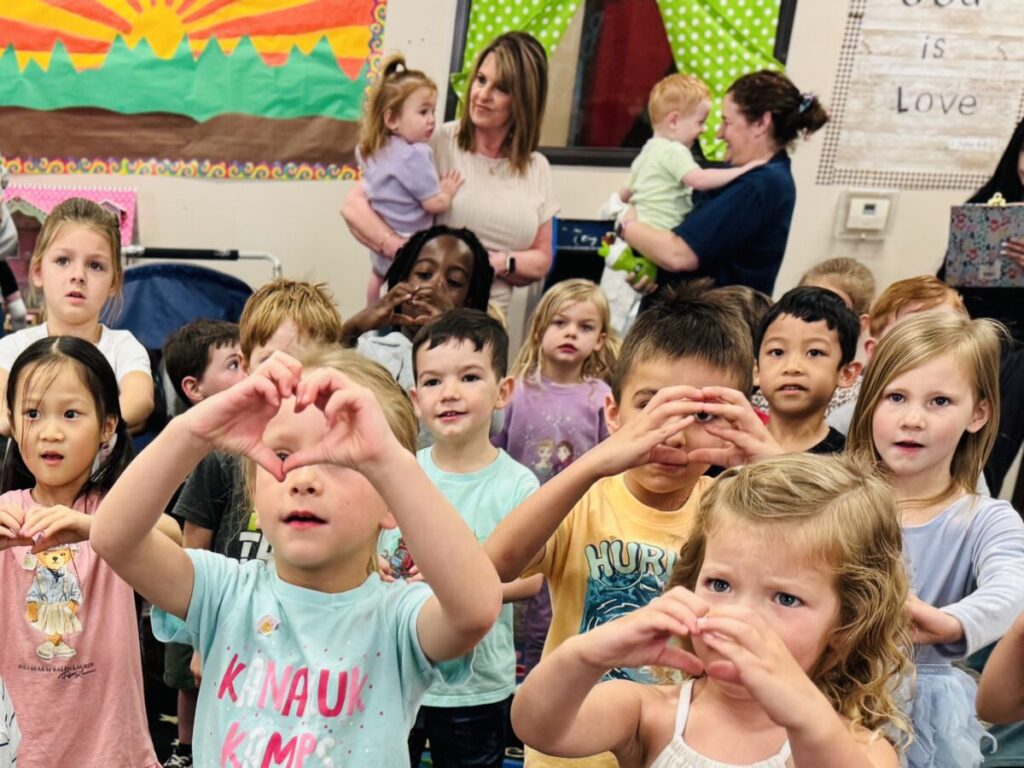Supporting Emotional Development in Toddlers
The toddler years represent an extraordinary period of emotional growth and discovery. As your little one begins to navigate their feelings—from joyful giggles to tearful tantrums—they’re developing critical emotional foundations that will serve them throughout life. At Castle Creek Christian Academy, our services strive to support emotional development in toddlers and require intentionality, patience, and wisdom grounded in both faith-based principles and developmental science.
Parents often wonder if their toddler’s emotional responses are normal or if they’re providing the right guidance during these formative years. Research shows that children who receive consistent emotional support during early childhood demonstrate greater resilience, stronger relationship skills, and better academic outcomes later in life. This critical window presents an incredible opportunity to shape not just how children express emotions, but how they understand and manage them.

Creating Emotional Safety Through Responsive Relationships
The cornerstone of healthy emotional development begins with secure attachments. When toddlers experience consistent responsiveness from caregivers, they develop the confidence to explore their emotions in a safe environment. This emotional security serves as the foundation upon which all other aspects of development flourish.
At Castle Creek Christian Academy, our teachers prioritize forming meaningful connections with each child, responding with warmth and consistency to their emotional needs. We recognize that each expression of emotion—whether joy, frustration, or uncertainty—represents an opportunity for connection and teaching. When adults validate feelings rather than dismissing them, toddlers learn that emotions are natural and manageable parts of human experience.
Research confirms that children who feel emotionally safe are more likely to develop healthy self-regulation skills. When caregivers respond empathetically to emotional moments, toddlers gradually internalize these responses, developing their own ability to self-soothe and manage feelings appropriately.
Naming and Framing: The Language of Emotional Intelligence
Toddlers experience complex emotions but lack the vocabulary to express them effectively. One of the most powerful tools we can provide is emotional language. When you help your toddler name their feelings—”You seem frustrated because the blocks fell down”—you’re building crucial neural pathways that connect emotions with understanding.
This process, often called emotional coaching, helps toddlers develop emotional intelligence. During these formative years, children are actively creating mental models for understanding their internal experiences. The words we provide become the framework through which they interpret and manage their emotional world.
Our teachers incorporate this approach throughout the day, narrating emotional experiences naturally during play, transitions, and social interactions. We find that children who can identify and name their feelings are better equipped to communicate their needs and work through challenges without resorting to challenging behaviors.
Modeling Emotional Wholeness Through Christian Values
Young children learn primarily through observation. When they see adults managing emotions in healthy ways, they absorb these patterns as normal and achievable. This modeling extends beyond calm moments to include how we handle stress, disappointment, and frustration.
At Castle Creek Christian Academy, we integrate Christian values into our approach to emotional development. Children learn that all emotions are God-given and serve important purposes. Rather than labeling emotions as “good” or “bad,” we teach children that feelings provide important information and that we can make wise choices about how we respond to them.
This faith-integrated approach helps children develop not just emotional regulation but spiritual understanding. They learn patience, gentleness, and self-control as fruits of the Spirit that guide their emotional responses. These biblical principles provide a meaningful framework for emotional growth that aligns with family values.
Creating Growth-Oriented Environments
The physical and social environment significantly impacts emotional development. Spaces that feel ordered, predictable, and age-appropriate help toddlers feel secure. Meanwhile, environments that provide appropriate challenges foster resilience and emotional growth.
Our classrooms are intentionally designed to balance security with appropriate challenge. Children encounter natural opportunities to practice emotional skills—taking turns, waiting briefly, experiencing minor disappointments—all within a supportive context where teachers provide guidance without removing all struggle.
These small challenges within a nurturing environment help toddlers build emotional muscles gradually. They discover they can experience difficult emotions and move through them successfully, developing confidence in their ability to handle future emotional situations.
Partnering with Families for Emotional Flourishing
Supporting emotional development requires consistency between home and school environments. When children receive similar messages about emotions across settings, they develop clearer understanding and more consistent skills.
We view our relationship with families as a sacred partnership. Through regular communication, parent education opportunities, and shared strategies, we work together to support your child’s unique emotional journey. This collaborative approach ensures children receive the comprehensive support they need during these foundational years.
At Castle Creek Christian Academy, we believe that emotional development is inseparable from spiritual, social, and cognitive growth. Our holistic approach nurtures children who not only understand their emotions but who develop hearts of compassion, kindness, and joy. We invite you to learn more about our approach to supporting your toddler’s emotional development. Contact Castle Creek Christian Academy today to schedule a visit and discover how our nurturing environment can help your child flourish emotionally and spiritually.
